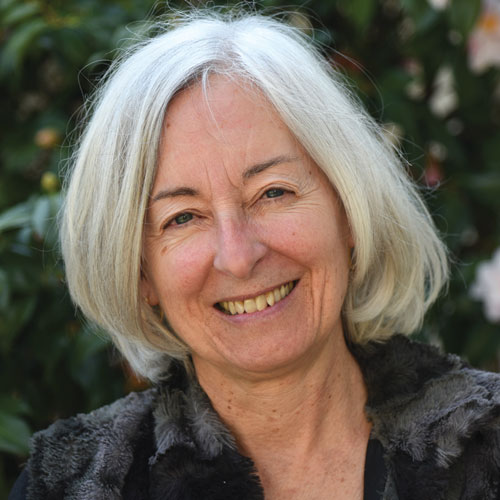
“It is with the utmost pleasure that we announce Jane Tylus’ appointment as the Andrew Downey Orrick Professor of Italian and Comparative Literature.”
Professor Tylus comes to us after serving on the faculties at the University of Wisconsin and NYU, punctuated by a visiting position at the Scuola Normale Superiore di Pisa. She has compiled a prodigious record of scholarly achievement, spanning topics in late medieval and Renaissance literature, and within these periods, including concentrations in genre—lyric, epic, autobiography, pastoral, romance, and national literatures—French, Spanish, English, with a special focus on Italian. Her research has appeared in all manner of academic publications (monographs, book chapters, articles, edited collections, textbook contributions and critical translations), and has been the subject of numerous public lectures presented in prestigious venues, both at home and abroad. This active scholarly agenda has not stood in the way of a distinguished administrative career, including her service as Vice Provost for Academic Affairs, and as founding director of the Humanities Initiative, at NYU.
But this dry listing of C.V. items cannot begin to explain our euphoria over Professor Tylus’s appointment. We had already gotten a foretaste of her collegiality and her teaching excellence during the academic year 2015-16, when she generously filled in at the last moment for a colleague who was away on medical leave. What we sensed then, and have come to fully understand as a result of the vetting process, is the “transformative energy” (as one of our students noted) that she has brought to the field of Renaissance Studies, and that she will bring to our program at Yale.
Among the most striking qualities that emerge from her work are her power to reframe our thinking about Italian literary history (adding a fourth “Corona”—Catherina of Siena–to the founding triumvirate of the Italian literary vernacular), her ability to enter into the creative process of writers and artists and engage us in the excitement of their achievements, her ingenuity in conjuring up the cultural environments which shaped these writers and were in turn shaped by them, her focus on the ethical dimensions of literature, art, and the workings of the imagination, her reconfiguring of Renaissance studies within a concept of global literature, her attention to urban histories with a focus on material as well as cultural influences, her expertise in the theory and practice of translation, her elevation, through critically acclaimed work on Catherine, Gaspara Stampa, and Lucrezia Tornabuoni, of women’s place in the canon, and her genuine collaborative spirit, as expressed in the numerous collective projects in which she has taken part.
In short, it is we who will be the direct beneficiaries of the “transformative energy” that Professor Tylus has brought to all of the scholarly and institutional communities fortunate enough to include her in their ranks. For all this, we welcome her a braccia aperte, and look forward to her friendship and her energizing presence for years to come.